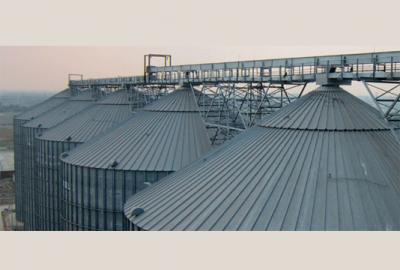DHAKA, April 6, 2018 (BSS) – The government is going to build eight silos across the country under the “Modern Food Storage Facilities” project for increasing the capacity of food grain reserve.
“The government will build six silos for rice and two for wheat. The eight silos will be built under three packages,” a senior official of the Directorate of Food told BSS here today.
Under the package one, he said, they have already signed a deal with Toma Construction Limited to build three silos in Madhupur, Mymensingh and Ashuganj.
At present, the total storage capacity of government warehouses and silos is around 21 lakh metric tons.
The official said this capacity will be increased to around 22 lakh metric tons within the current year, then to 27.45 lakh MT by 2020 and around 30 lakh metric tons by 2025.
He informed that a total 3.60 crore metric tons of rice and around 26 lakh metric tons of wheat are produced in a year. For storing the food grains, modern food storage needs to be increased, he added.
He said the government took the Modern Food Storage Facilities Project to build steel silos in collaboration with the World Bank in order to save the long-term two to three strategic reserves for tackling natural disasters like flood and cyclone.
Under the project, the government will develop eight silo complexes with a total capacity of 5.36 lakh MT, reduce storage losses, adopt the best suited technology for preservation of food grain quality, quantity and nutritional level and ensure safe storage of food grain during calamities and better monitoring and improved governance and management of food stocks.
Total project cost is US$240.42 million. Out of the total project cost, $210 million will come from International Development Association (IDA) grant, $25 million will come from Bangladesh Climate Change Resilience Fund (BCCRF) grant, $5 million from beneficiary contribution and rest of the fund will come from government exchequer.
Through the project, At least 10 million people (or some 25 percent of the population living in the project area) are expected to directly or indirectly benefit from the project.
About 500,000 households will directly benefit from facilitated access to household silos. A portion of the recipients of food based safety net programs will indirectly benefit from the project through the improved quality of the food grain released from the modern storage facilities. It is estimated that over half of all beneficiaries will be women and children.



